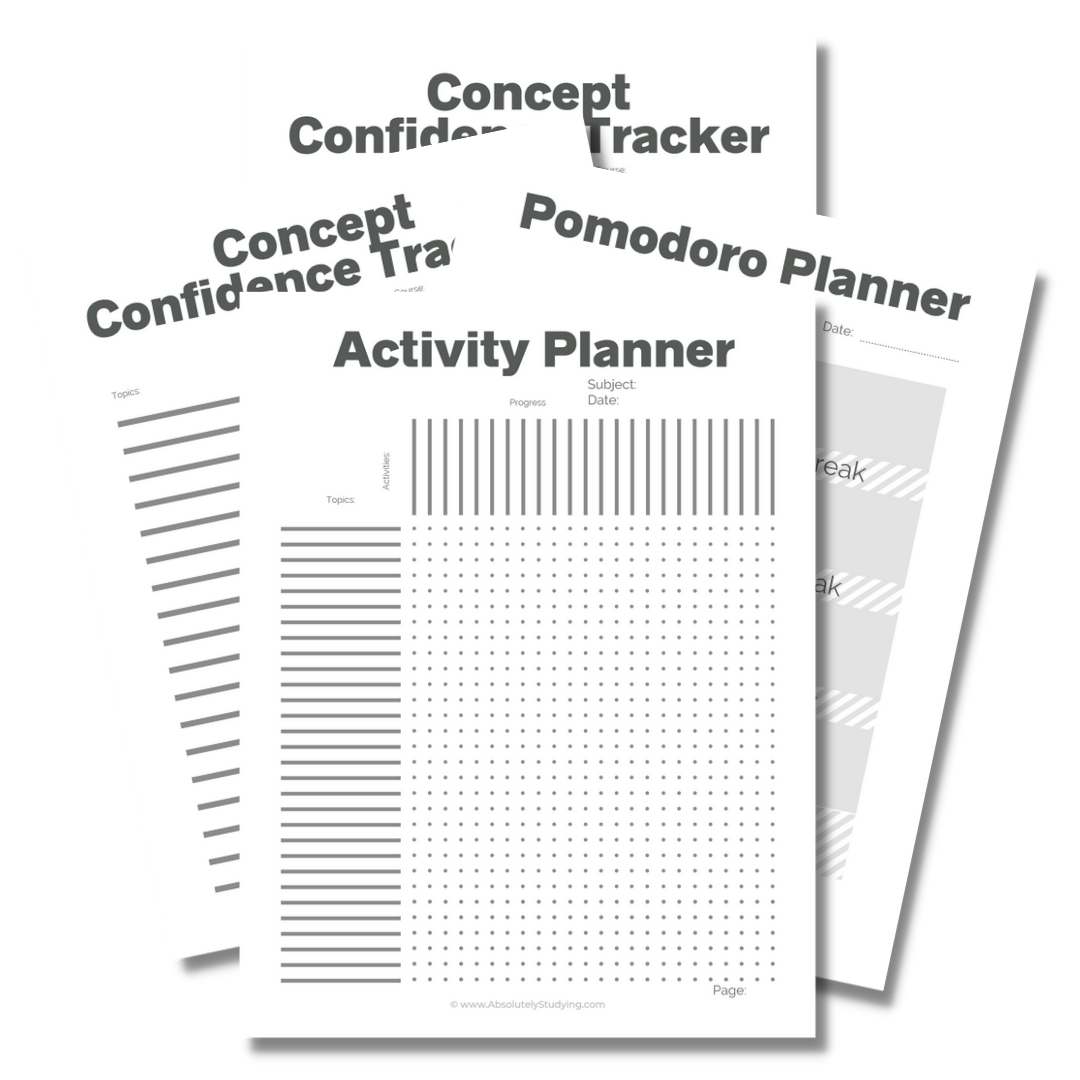10 Reasons Why You Should Fully Understand Old Material Before Next Class
10 Reasons Why You Should Fully Understand Old Material Before Next Class
Get motivated to master course content so you don’t fall behind.
* Disclaimer * Some of the posted links are affiliate programs. By clicking these links, I may receive monetary compensation. This will not alter the price or change the buyer's experience.
In university, staying on top of your coursework means everything. Once those classes start, there is very little wiggle room in your schedule. It can be impossible to catch up.
University moves fast. It’s not uncommon to learn entirely new concepts in every lecture. Being proactive and ensuring that you know the ins and outs of these ideas before you return next class will help make sure you do not fall behind.
This fast pace is often uncomfortable as it’s hard to get genuinely confident with a topic before being forced to move on. Sometimes you feel like you are only scratching the surface before you have to proceed. Taking responsibility for your own learning journey and understanding the material before your return can ensure this discomfort subsides and you are always secure in the information.
A solid, structured study plan will be critical to ensuring you master the course material. If you struggle with your study sessions, pick up my free study planner and activity tracker. It has everything you need to create a comprehensive study guide for the entire semester. It even comes with a Pomodoro Planner to make the most of every single study session. Use it to create your study plan and finally see the results you’ve been working for. You can download it here.
DOWNLOAD NOW: FREE STUDY PLANNER AND ACTIVITY TRACKER
Download your free study planner and activity tracker.
Everything you need for the semester you want!
10 Reasons Why You Should Fully Understand Old Material Before Next Class
So you do not fall behind
A significant amount of information must be covered each semester. The professor often can’t afford to devote several lectures to a single concept. They have to keep pushing on. This leaves a lot of the responsibility of learning to you.
In high school, the instructor would take the time over several classes to explain a concept and then give you multiple examples. They work out the problems first. Next, they would work through them with you. Finally, they would give you homework to check your understanding. This doesn’t happen in university. Instead, you have to figure it out on your own. Using your textbook, lecture material, and other resources, you have to make sure you understand on your own time.
This break-neck speed will often lead to a brand new topic in every class, regardless of your readiness to move on. If a professor lingers too long on a subject, they will have to blast through several others just to catch up. Because of this, the onus of learning these topics fall on you to do on your own.
So you can ask questions
Often the professor will address any outstanding issues during the following class. It’s not uncommon for them to open the lesson this way. Being able to ask questions to clarify difficult concepts quickly, before you progress too far past the information, will help the professor explain any problematic subjects. This will also allow them to relate any new information to your questions.
Asking questions also helps you to identify any weak areas right away. Figuring out concepts that seem confusing before straying too far away from them will help you to stay on top of the information. When you pile too much new data on a confusing topic, it is hard to figure out exactly where the problem is. Focus on mastering the new material after each class. You will be aware of exactly where the weakness lies.
Because the professor will have likely moved on
Post-secondary classes move fast. You are usually expected to cover several concepts in a single lecture and know them well enough to elaborate and build upon them in the following lesson. Making sure that you understand and can work with the information taught in the previous class will ensure that you do not fall behind when things speed up.
It will also help you to have a solid foundation for the new concepts to build upon. Since these classes move quickly, each idea will build on top of the last. If you master the model before you return to class, your foundation will be solid, and you will be more likely to understand the new topic. Diving deep into the details is a sure way to anchor this understanding.
So you can start studying new material
Falling behind can happen quickly. Once it does, you can struggle and never catch up. This can feel like you are drowning, and it is kinda true. Notes will pile up, assignments will draw closer and closer, and you will have to rush on both. You feel like your workload is impossible, and soon you lose motivation.
It will be easy to get confused without stopping to make sure you really understand the material. This means you might lose straightforward marks simply because you did not fully understand a concept or one of the underlying theories it was built upon. By taking time to learn each topic before returning next class, you are much more likely to master them.
You can identify material that you struggle with early
Not getting something right away is nothing to be ashamed of. Some concepts are just harder than others or not presented in a way that is clear to your learning style. Identifying the material you have difficulty understanding will give you more opportunities to clarify and learn about it.
The earlier you identify tricky concepts, the more opportunity you have to clarify and understand them. You can even schedule extra study activities to really work out problems related to these topics. While you may feel intimidated or unmotivated to tackle these at first, it will be much more fun once you start getting confident with the information. You might even start looking forward to problems around these theories.
Frees up time to concentrate on the material you struggle with
Keeping current with your studying and having a solid understanding of the content before the following class can also move your study sessions from catching up to getting ahead. Having this kind of flexibility with your study schedule means you can spend less of your time on material you understand and focus more on the information you are having trouble with.
Once you clearly identify where you need to use this extra study time, you can concentrate and flesh out the details of complex subjects. You can even track your confidence on any concept using the confidence tracker template in my free study tracker. As you grow more confident with these subjects, your study sessions will be less intimidating and more fun. You can start doing lighter study activities like active recall or flashcards.
New concepts build on old ones
The information you learn in today’s class will likely be elaborated on and built upon in the next session. Nearly all of the fundamentals of education follow this premise. We start with simple concepts, and they slowly become more complicated. Addition leads to multiplication, multiplication leads you to exponents and so on. If you struggle with any material, you will have difficulty moving on to more complicated concepts.
Nearly everything you learn serves as the foundation for more complicated theories to build upon. Establish a strong foundation so that the rest can fall into place. When you clearly understand these foundational topics, you will see that the details fit neatly in place.
Cement it while it’s “fresh”
Moulding information in your mind is most natural while it’s fresh. While the lecture is new, and your understanding is malleable, you can most easily establish connections to relevant information and clarify your comprehension. Creating these mental associations is an incredible way to improve your knowledge and commit concepts to memory.
As you get farther and farther from the lecture, you will forget more and more of it. This can cause confusion or misunderstanding in recall when you finally sit down to study. If you take the time to master the material right after class, when the information is freshest, you will retain more of the information longer.
Study Skills Digital Course
Learn how to create a stress-free comprehensive strategy!
Removes the need to cram
Keeping current with your studies will ease some of the ability to pack in study sessions around exam time. When exams come around, you can use them to review concepts you already understand rather than rushing to learn information that you have overlooked.
By studying new material immediately after the lecture, then reviewing it over the semester, you will be less likely to forget any topics. Regularly reviewing each concept and tracking your progress will ensure that nothing gets overlooked. This will reduce the pressure surrounding test time.
Allows more time to vary your study activities
By learning these important concepts before the following class, you can more readily change up study activities when it is time to sit down and review. Using a variety of different study activities is going to keep your study sessions fun and engaging. This will boost motivation and actually have you looking forward to your revision time.
Having fun and doing engaging activities during your study sessions is an excellent way to break up the monotony. Rewriting notes day after day can be tedious. It’s nice to have something else to look forward to sometimes. Try making flashcards or doing some practice tests. There are many study activities besides reading your textbook or rewriting your notes.
Staying on top of course material is the best way to avoid stress and overwhelm. By making sure you fully understand old material before you return next class, you will ensure this does not happen. You will have a strong understanding of foundational concepts, ready for new details to be built upon.
Study sessions will change from reactive cramming to proactive, enjoyable review sessions that help improve your confidence and recall speed. This means less anxiety during test time. Instead, you can walk into the test assured of your ability to tackle the material and get the grade you want.
If you are looking for a study strategy that actually helps you stay on top of your workload, try my study planner and activity trackers. It has templates to help you design a study guide that works for you, plan out each study session, and track your confidence in each concept. There are more than 8 pages of goodies, and you can download it for free.
I would like to be transparent so that there are no misunderstandings. As an affiliate, I may earn a small commission from any products linked in this post. This is not a sponsored post, and I was not asked to recommend these products. These are products that I genuinely love and want to share with my audience.
















